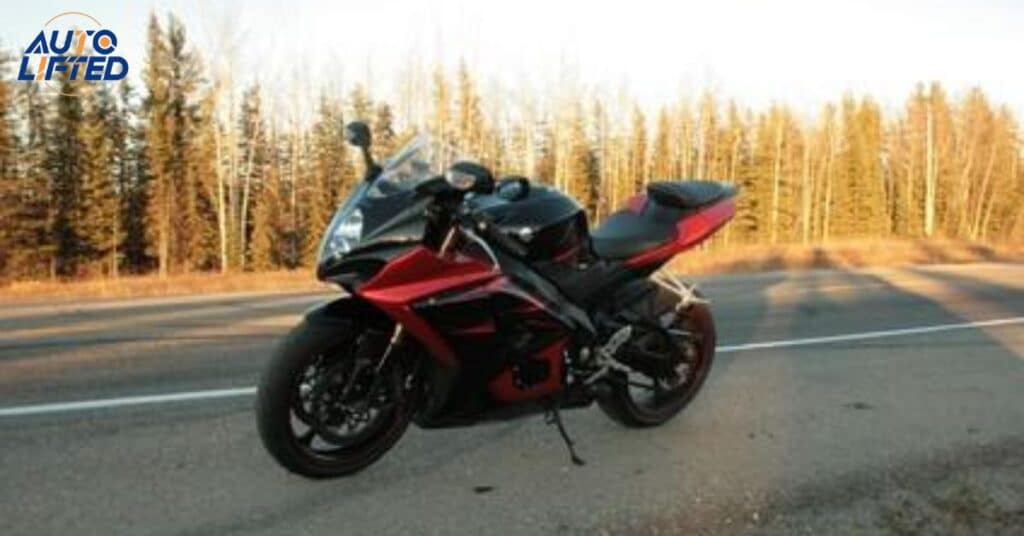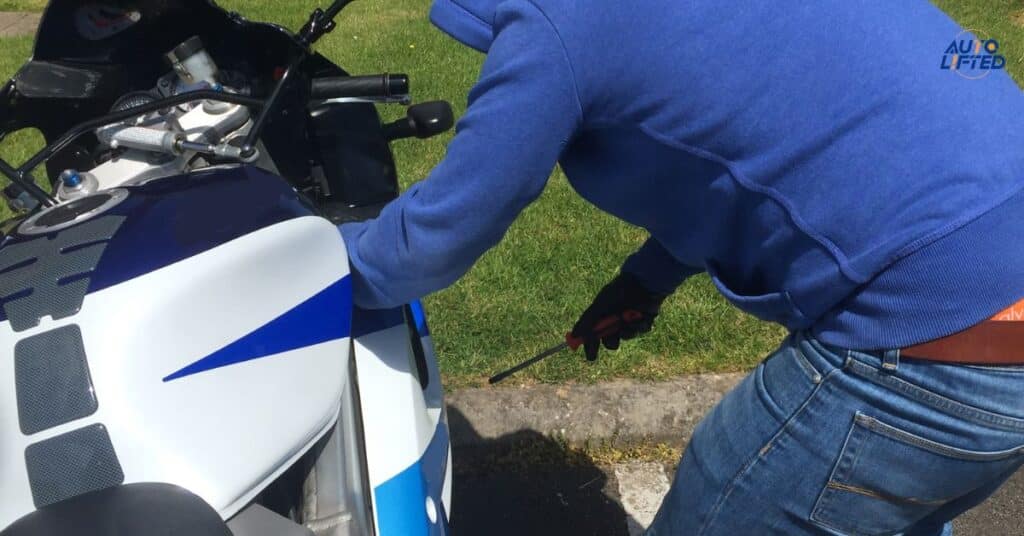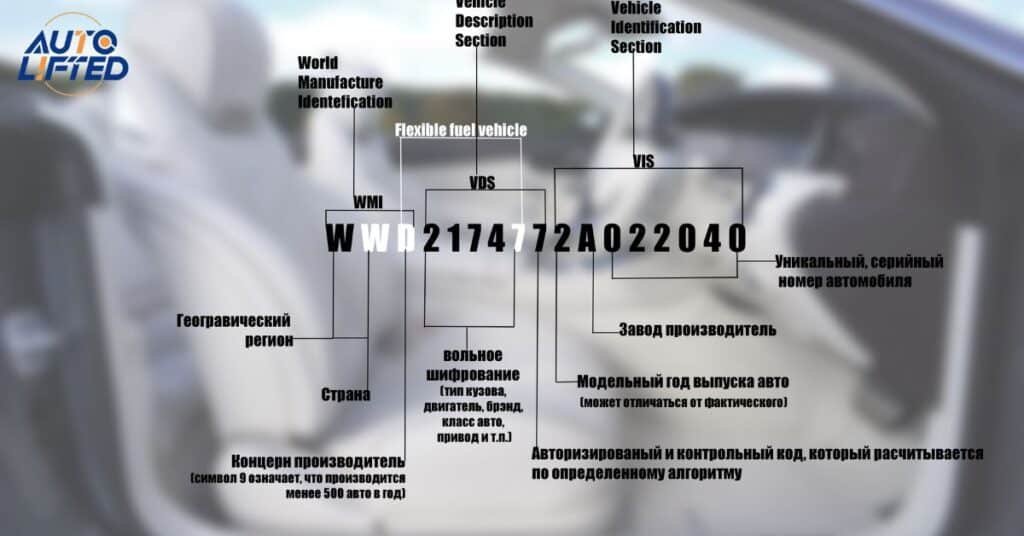A motorcycle is stolen by checking its VIN (Vehicle Identification Number) against databases of stolen vehicles maintained by law enforcement agencies or online platforms specialized in vehicle history reports. This process helps ensure the legitimacy and ownership of the motorcycle.
Curious about a motorcycle’s past? Wondering if it’s stolen? With just the VIN number you can ease your mind. Verify its history effortlessly and ensure authenticity with a quick online search or by consulting law enforcement databases. Don’t let doubts linger – check the VIN and ride with peace of mind. Keywords: motorcycle VIN number stolen check history authenticity.
Ever wondered about a motorcycle’s past? Well with just its VIN number you can uncover whether it’s been reported stolen. Take a moment to check online databases or reach out to local authorities. It’s all about ensuring your peace of mind before hitting the road or making a purchase. Keywords: motorcycle VIN number past stolen check databases peace of mind.
What is a VIN
A VIN or automobile identification number is like a completely unique fingerprint for motors. it’s a special code composed of 17 characters that serves as a vehicle’s DNA. This wide variety offers important information approximately a automobile’s make version year united states of America of manufacture and extra. it’s often determined at the dashboard close to the windshield at the driver’s aspect door jamb or on vehicle registration files.
think about a VIN as a vehicle’s personal identification card. every man or woman represents specific information about the vehicle, along with its producer capabilities and manufacturing series. With a VIN you can trace a automobile’s complete records which includes ownership information coincidence reviews and whether it’s been stolen. The ultimate tool for making sure transparency and reliability whilst buying or selling a car.
Also read this :http://Jeep Won’t Start? Here’s Quick Solutions To The Most Common Causes
Checking a motorcycle by VIN code: is it needed
Checking a motorcycle’s VIN code is a crucial step that shouldn’t be overlooked. This unique identifier holds valuable information about the motorcycle’s history including its manufacturer model year of production and more. By running the VIN through databases you can verify its ownership, ensuring you’re dealing with a legitimate seller. It helps uncover whether the motorcycle has been reported stolen offering vital peace of mind before making a purchase. Overall, checking a motorcycle by its VIN code is essential for transparency safety and confidence in any transaction involving a motorcycle.
Verification of Ownership: It helps confirm the legitimacy of the motorcycle’s ownership, ensuring you’re dealing with the rightful owner.
Stolen Vehicle Check: By running the VIN through databases, you can determine if the motorcycle has been reported stolen offering crucial peace of mind.
Understanding the History: The VIN reveals essential details about the motorcycle’s history including its manufacturing details accident records and any outstanding recalls.
Safety Assurance: Knowing the motorcycle’s history through its VIN can help you assess its overall condition and ensure it meets safety standards protecting you from potential risks or liabilities.
Where is the VIN on a motorcycle?

Locating the VIN on a motorcycle is essential for several reasons, including registration, insurance, and confirming its identity. Here are six common places where you can find the VIN:
Steering Neck: Look near the front fork’s attachment point to the frame. There may be a metal plate or sticker with the VIN engraved or stamped onto it.
Frame: The VIN is often stamped directly onto the motorcycle’s frame usually near the steering neck or another easily visible location.
Motor: Check near the bottom of the cylinders or on the engine cases. The VIN might also be stamped on various parts of the engine.
Side of the motorcycle: In some cases, you might find a VIN plate attached to the side of the motorcycle’s frame or body.
Underneath the seat: Lift the motorcycle’s seat to see if the VIN is stamped or printed on the frame underneath.
Where to check the motorcycle by VIN code
Checking a motorcycle’s VIN code is crucial for ensuring its authenticity and verifying its history. Here are six places where you can perform this check:
Online VIN Check Services: Several websites offer VIN check services where you can input the motorcycle’s VIN to access its history report including any reported accidents theft records or recalls.
Department of Motor Vehicles (DMV): Visit your local DMV office or their website to inquire about VIN checks. They may provide services or guidance on how to obtain a comprehensive vehicle history report.
Law Enforcement Agencies: Contact local law enforcement agencies or visit their websites to inquire about VIN checks. They may have databases or resources available to assist in verifying the motorcycle’s history.
Manufacturer’s Website: Some motorcycle manufacturers offer VIN check services on their websites. You can input the VIN to access information such as warranty status recalls and service history.
Third-party VIN Check Providers: Various third-party companies specialize in providing detailed vehicle history reports based on VIN numbers. You can access these services online or through their customer support.
Mechanical Inspection: Consider hiring a professional mechanic or technician to perform a thorough inspection of the motorcycle including checking the VIN to ensure it matches the vehicle’s documentation and history.
What Is a Motorcycle VIN and Why Is It Important?
Understanding what a motorcycle VIN (Vehicle Identification Number) is and why it’s important is crucial for any motorcycle owner or buyer. Here are six key points to consider:
Unique Identifier: The VIN is a unique code assigned to each motorcycle serving as its distinct fingerprint. No two motorcycles share the same VIN making it essential for identification purposes.
Vehicle History: The VIN holds vital information about the motorcycle’s history including its manufacturer model year of production and country of origin. This information helps verify the motorcycle’s authenticity and provides insights into its background.
Ownership Verification: The VIN is used to verify ownership during registration and title transfer processes. It ensures that the motorcycle legally belongs to its current owner and helps prevent theft and fraud.
Safety Recalls: Manufacturers use the VIN to track safety recalls and issue notifications to owners. By checking the VIN motorcycle owners can stay informed about any recalls affecting their vehicles and take necessary actions to address safety concerns.
Insurance and Registration: Insurance companies and regulatory agencies use the VIN to identify motorcycles and maintain accurate records. It’s required for insurance purposes and registration ensuring compliance with legal and safety standards.
Resale Value: The VIN plays a significant role in determining the resale value of a motorcycle. A comprehensive vehicle history report based on the VIN helps potential buyers assess the motorcycle’s condition history and market worth influencing their purchasing decisions.
Why do I need a Motorcycle VIN Check?
Performing a motorcycle VIN check is essential for various reasons ensuring transparency safety and peace of mind for both buyers and owners. Here are several key points to consider:
Verify Authenticity: A VIN check helps verify the motorcycle’s authenticity confirming that it hasn’t been tampered with or misrepresented.
Check for Stolen Vehicles: By running the VIN through databases, you can determine if the motorcycle has been reported stolen helping you avoid purchasing stolen property and legal complications.
Understand Vehicle History: The VIN provides insights into the motorcycle’s history, including previous owners’ accidents repairs and maintenance records. This information helps assess its overall condition and potential risks.
Ensure Safety: Identifying any outstanding recalls or safety issues associated with the motorcycle through the VIN check helps ensure the safety of riders and passengers.
Protect Investment: For buyers a VIN check is crucial for protecting their investment. It helps them make informed purchasing decisions avoiding hidden problems and unexpected expenses down the road.
Compliance with Regulations: VIN checks are often required for registration and insurance purposes ensuring compliance with legal and regulatory standards. It’s an essential step in the buying and ownership process providing documentation and peace of mind.
Where can I find my Motorcycle VIN?
Locating your motorcycle’s VIN is crucial for various administrative and maintenance purposes. Here are several common places where you can find it:
Steering Neck: Check near the front fork’s attachment point to the frame. Often, you’ll find a metal plate or sticker with the VIN engraved or stamped onto it.
Frame: The VIN is frequently stamped directly onto the motorcycle’s frame usually near the steering neck or another visible area.
Motor: Look near the bottom of the cylinders or on the engine cases. The VIN might also be stamped on various parts of the engine.
Side of the motorcycle: In some cases, manufacturers attach a VIN plate to the side of the motorcycle’s frame or body for easy access.
Underneath the seat: Lift the motorcycle’s seat to see if the VIN is stamped or printed on the frame underneath.
Owner’s manual or documents: The VIN may also be listed on your motorcycle’s owner’s manual registration documents or insurance paperwork for quick reference.
Sale or Sharing of Personal Information (“P.I.”)
Sale or sharing of personal information often referred to as P.I. is a significant concern in today’s digital age. It involves the transfer or exchange of individuals’ personal data to third parties often without their explicit consent. This practice raises privacy and security issues as personal information can be exploited for targeted advertising identity theft or other malicious purposes. It’s essential to understand how your data is being handled and to have control over its dissemination.
Protecting your personal information should be a top priority. Be cautious when providing sensitive data online or offline and only share it with trusted sources. Review privacy policies carefully to understand how your information may be used or shared by organizations. Consider using privacy-enhancing tools and services to safeguard your data and minimize the risk of unauthorized access or exploitation. By taking proactive measures you can better protect your privacy and control the dissemination of your personal information.
How can I Check if a Motorcycle is Stolen?

Checking if a motorcycle is stolen is essential before purchasing or dealing with a used bike. Here are some steps you can take:
Run a VIN Check: Use the motorcycle’s VIN (Vehicle Identification Number) to search online databases or contact local law enforcement to see if it’s been reported stolen.
Check Stolen Vehicle Registries: Many countries have stolen vehicle registries or databases accessible to the public. Search these databases using the motorcycle’s VIN or other identifying information.
Inspect Ownership Documents: Ensure that the seller’s ownership documents such as the title and registration match the motorcycle’s VIN. Any discrepancies could be red flags.
Look for Signs of Tampering: Examine the motorcycle for signs of tampering or alteration, such as scratched-off VINs or mismatched parts. Suspicious modifications could indicate theft.
Meet in Safe Locations: When meeting with a seller, choose a safe and public location for the transaction. Avoid secluded areas and always trust your instincts.
Common Signs that a Motorcycle Might be Stolen
Recognizing common signs that a motorcycle might be stolen is crucial for buyers and sellers alike. Here are some indicators to watch out for:
Missing or Altered VIN: If the VIN (Vehicle Identification Number) is missing scratched off or altered, it could be a sign of theft.
No Ownership Documents: A lack of proper ownership documents such as a title or registration suggests the motorcycle’s history may be questionable.
Suspiciously Low Price: Be wary of motorcycles being sold at significantly lower prices than market value, as this could indicate a stolen vehicle being quickly offloaded.
Ignition Damage: Damage to the ignition or other parts of the motorcycle could indicate forced entry a common method used in vehicle theft.
Unusual Modifications: Unusual modifications or alterations to the motorcycle such as replaced locks or missing components may indicate attempts to conceal its true identity.
Protecting yourself from Stolen Motorcycles in Private Sales
Protecting yourself from purchasing a stolen motorcycle in private sales is essential. Here are some practical steps you can take:
Ask for Documentation: Always request to see the motorcycle’s title registration and maintenance records. Verify that the VIN on these documents matches the VIN on the motorcycle.
Meet in Safe Location: Arrange to meet the seller in a public and well-lit area for the transaction. Avoid meeting in secluded locations to minimize risks.
Run a VIN Check: Conduct a VIN check using online databases or through local law enforcement to ensure the motorcycle hasn’t been reported stolen.
Inspect the Motorcycle Thoroughly: Examine the motorcycle for signs of tampering such as scratched-off VINs or mismatched parts. Trust your instincts and walk away if anything seems suspicious.
By taking these precautions you can reduce the chances of unknowingly purchasing a stolen motorcycle and protect yourself from potential legal and financial consequences.
Avoid Buying a Stolen Motorcycle

Avoiding buying a stolen motorcycle is essential to protect yourself from legal and financial troubles. Here are some simple yet effective steps you can take:
Verify Ownership Documents: Always ask to see the motorcycle’s title registration and maintenance records. Ensure that the seller’s name matches the name on the documents and that they seem legitimate.
Run a VIN Check: Utilize online VIN check services or contact local law enforcement to verify the motorcycle’s history. Check if it has been reported stolen or if there are any discrepancies in its records.
Meet in Safe Locations: Arrange to meet the seller in a public place for the transaction. Avoid secluded areas and trust your instincts.
Trust Your Gut: If something feels off or too good to be true, it’s better to walk away. Don’t rush into a purchase and take the time to thoroughly inspect the motorcycle and its documentation.
By following these steps, you can minimize the risk of unwittingly purchasing a stolen motorcycle and ensure a smooth and legitimate transaction.
Avoid Getting your Bike Stolen when Selling it
Avoiding the theft of your bike when selling it requires careful planning and precautionary measures. Here are some practical tips to keep your bike safe:
Choose Secure Meeting Locations: opt for well-lit public areas with surveillance cameras for meetings with potential buyers. Avoid isolated spots that could make you vulnerable to theft.
Require Documentation: Before handing over the bike ask to see the buyer’s identification and ensure they have a valid motorcycle license. Also, keep a record of the buyer’s contact information.
Accompany Test Rides: Accompany the buyer during test rides or hold onto their identification as collateral. This ensures they don’t disappear with your bike during the test ride.
Be Vigilant: Trust your instincts and be cautious of any suspicious behavior from potential buyers. If something feels off it’s better to decline the sale than risk losing your bike to theft.
By implementing these measures, you can significantly reduce the risk of your bike being stolen during the selling process and ensure a safe and successful transaction.
Frequently Asked Questions
Can I check if a motorbike is stolen?
Yes, you can check if a motorbike is stolen by running its VIN (Vehicle Identification Number) through online databases or contacting local law enforcement agencies.
How do I check the VIN number on a motorcycle?
You can check the VIN number on a motorcycle by looking at the steering neck frame motor side of the motorcycle underneath the seat or owner’s manual and documents.
How do I search a VIN number for free?
You can search a VIN number for free using online VIN check services or accessing public databases provided by certain government agencies or organizations.
How do I find my lost motorcycle?
Contact local law enforcement to report the loss, check nearby areas where it might be parked or abandoned and utilize social media platforms or online forums to spread the word and seek assistance from the community in locating your lost motorcycle.
Conclusion
A motorcycle is stolen using its VIN number is crucial for buyers and owners alike. By running the VIN through databases or contacting law enforcement you can confirm its legitimacy ensuring peace of mind and compliance with regulations. Utilizing VIN checks helps uncover any theft reports associated with the motorcycle safeguarding against purchasing stolen property or facing legal repercussions. The buying a motorcycle or ensuring the safety of your own leveraging the VIN number as a tool for verification is essential in navigating the complexities of the market and protecting yourself from potential risks.
In a world where motorcycle theft is prevalent checking a motorcycle’s VIN number offers a vital layer of security. It empowers individuals to make informed decisions avoid fraudulent transactions and uphold integrity in the marketplace. VIN checks provide a transparent means of verifying ownership and history fostering trust between buyers and sellers while deterring criminal activity. With the VIN as a reliable identifier individuals can navigate the motorcycle market confidently knowing they have the tools to discern authenticity and protect their investments effectively.

Passionate automotive enthusiast sharing insights, tips, and stories from the world of cars. Join me on an exhilarating journey through the roads of automotive excellence.







